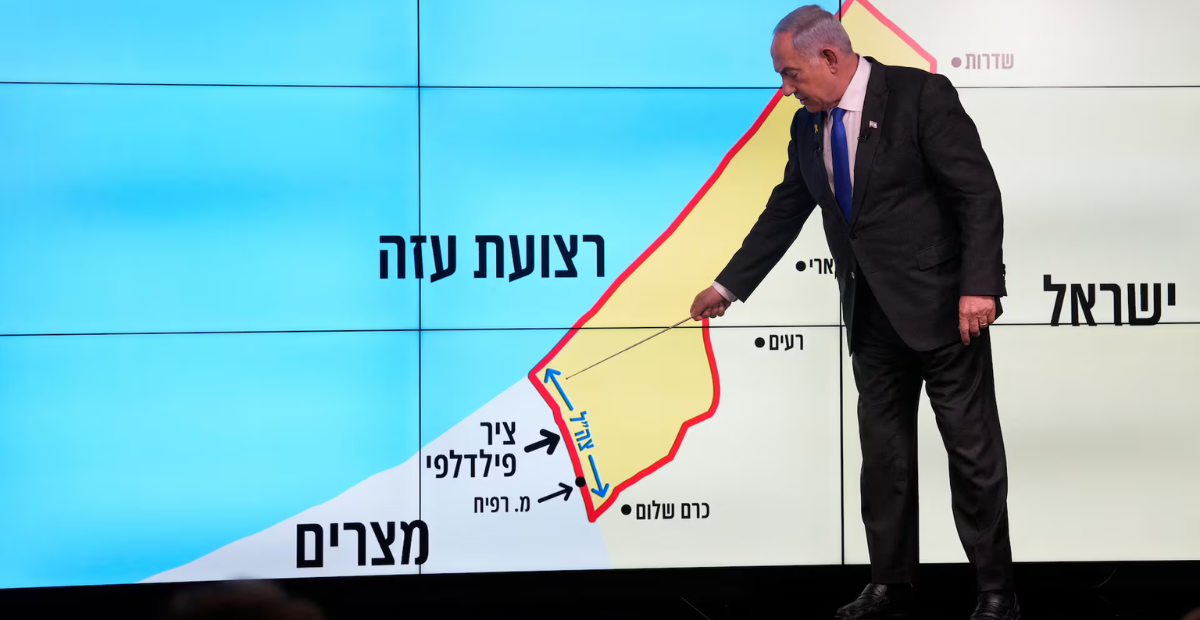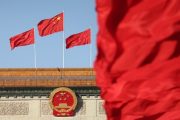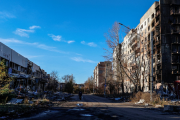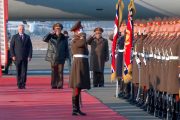Israeli Prime Minister Benjamin Netanyahu on Monday did not soften his stance on keeping troops in the southern Gazan border area as the price for a ceasefire deal. He considers it as vital for Israel to control a key lifeline for Hamas.
The issue of the so-called Philadelphi corridor, on the southern edge of the Gaza Strip bordering Egypt, has been a major sticking point in efforts to secure a deal to halt the fighting in Gaza and return Israeli hostages held by Hamas.
Hamas has rejected any Israeli presence, while Netanyahu has insisted that Israel will not abandon the corridor, where Israeli troops have uncovered dozens of tunnels they say have been used to smuggle weapons and ammunition into Gaza.
“The axis of evil needs the Philadelphi corridor, and for that reason we must control the Philadelphi corridor,” he told a news conference in Jerusalem.
“Hamas insists for that reason that we not be there, and for that reason, I insist that we be there,” he said.
If Israel were to pull out of the corridor, international pressure would make it difficult to return, he said.
Netanyahu’s stance on the negotiations, which have been continuing for weeks while showing little sign of a breakthrough, has frustrated allies, including the United States and widened a rift with his own defence minister, Yoav Gallant.
On Sunday, Gallant, who has clashed repeatedly with Netanyahu and other ministers, called on the cabinet to reverse an earlier decision to keep troops in the Philadelphi corridor in order to reach a deal to bring more hostages home.
Asked whether he would fire his defence minister, Netanyahu said they could keep working together “as long as there is trust”. Netanyahu sacked Gallant last year over a separate issue only to back down in the face of massive public protests.
“But this trust requires one thing before all else – that all ministers, without exception, are beholden to government and cabinet decisions,” he said. “And that is the main thing that is now being tested.”
U.S. President Joe Biden said Netanyahu was not doing enough to secure a hostage deal, an issue that has gained renewed urgency following the recovery of the bodies of six hostages on Sunday, only hours after they were shot dead.
The killing of the six hostages drew hundreds of thousands of Israelis to the streets on Sunday to press for a deal and protests continued into Monday with demonstrators attempting to disrupt Netanyahu’s news conference.
Asked about Biden’s comments, Netanyahu said the pressure should be applied to Hamas, not Israel, particularly after the killing of the hostages, who he said had been shot in the back of the head by their captors.
“And now after this we’re asked to show seriousness? We’re asked to make concessions? What message does this send Hamas? It says, kill more hostages,” he said.
He said he did not believe Biden or anyone serious about achieving peace would ask Israel to make more concessions: “We’ve already made them. Hamas has to make the concession.”
Opposition leader Yair Lapid called Netanyahu’s comments in the news conference “baseless political spin” aimed at ensuring his own political survival by placating his coalition partners Bezalel Smotrich and Itamar Ben-Gvir, who lead two hardline parties that reject any accommodations to reach a deal.
Teram BharatShakti
(With Inputs from Reuters)









































